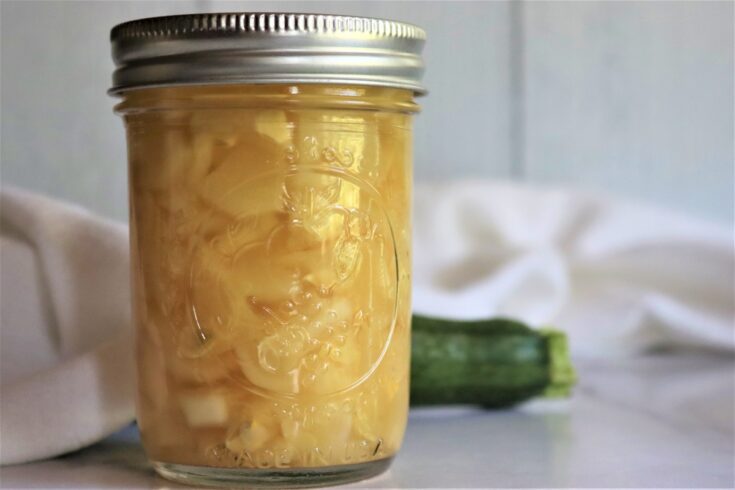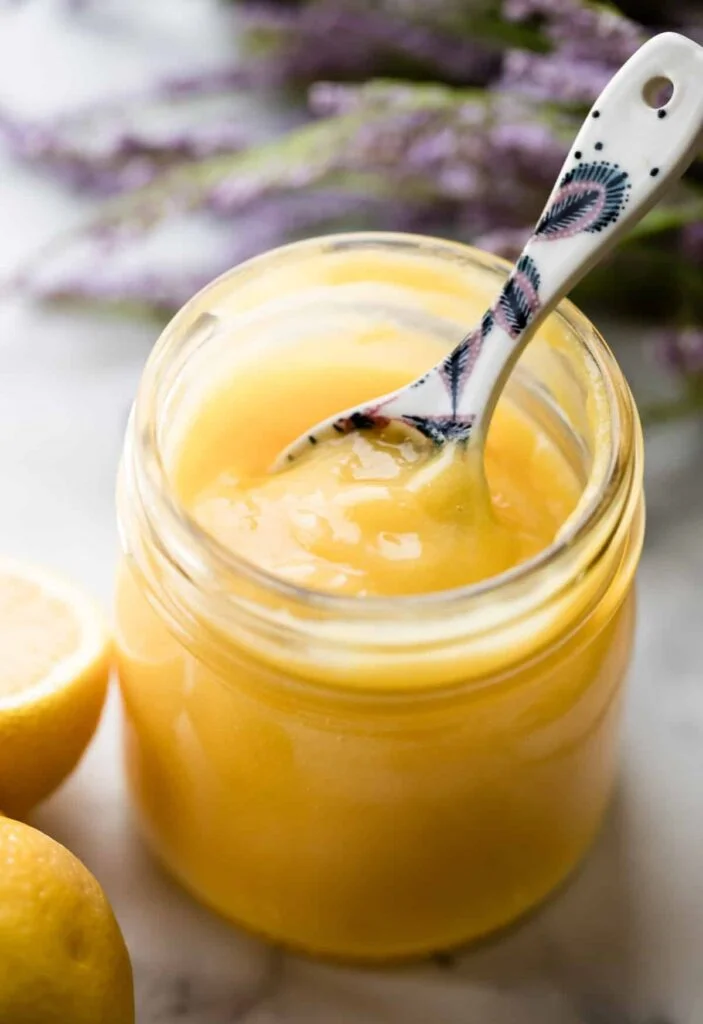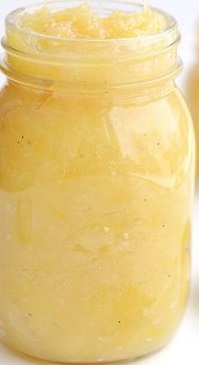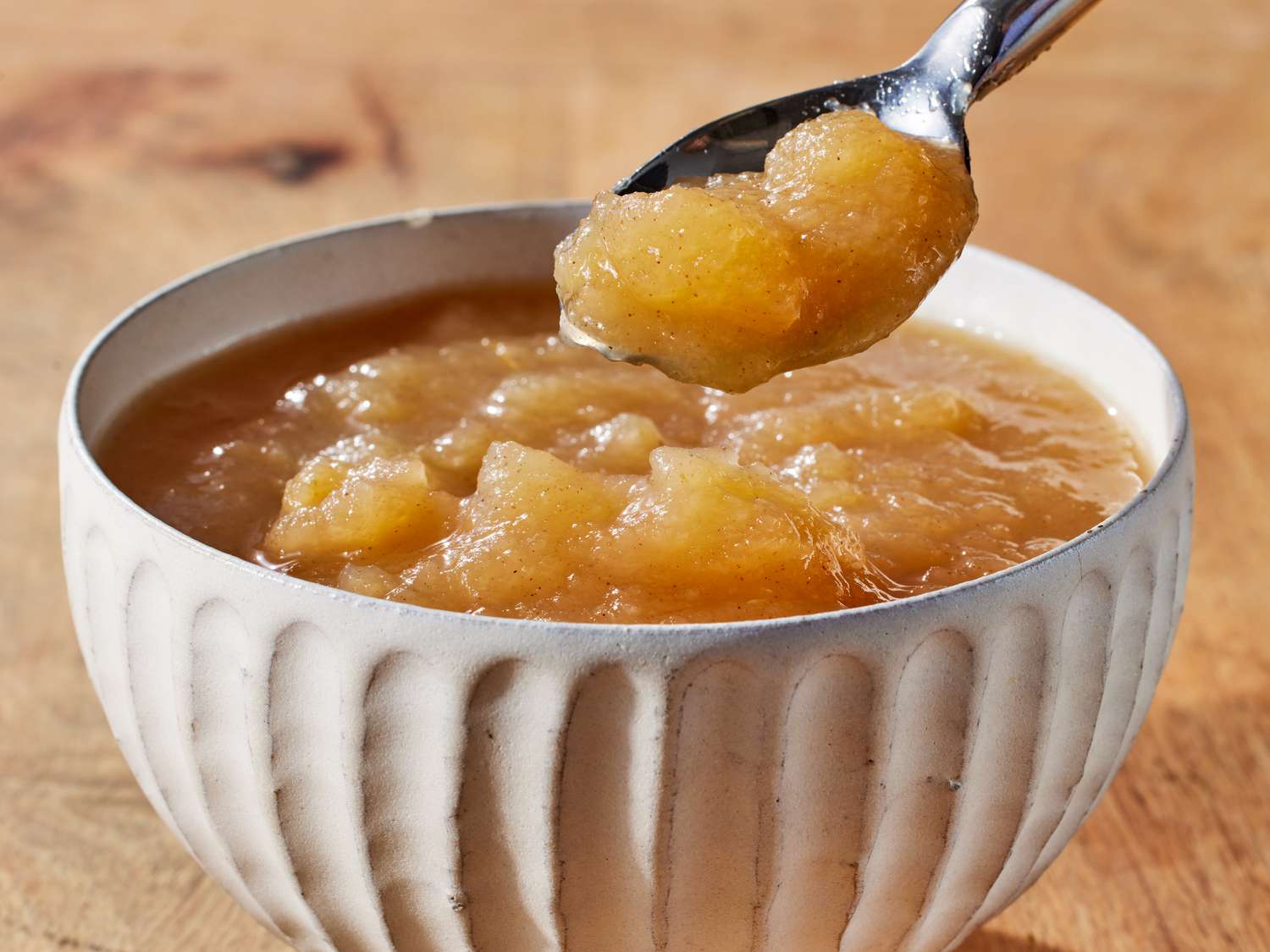A great zucchini recipe that will fool you into believing it’s pineapple. Perfect to add to your pantry during canning season!
Prep Time: 10 mins
Cook Time: 50 mins
Total Time: 1 hr
Servings: 8 pints
Ingredients
- 16 C zucchini, peeled/diced about 6 lbs yields 16 C
- 1 1/2 C sugar
- 1 1/2 C lemon juice
- 46 oz can all natural pineapple juice
Instructions
- Prepare a water bath canner before beginning, and bring it up to 180 degrees F for hot pack canning.
- Wash and peel zucchini, then either shred or dice into 1/2 inch cubes.
- Bring the zucchini, pineapple juice, lemon juice, and sugar to a simmer in a stock pot. Simmer for 20 minutes (this is not optional, it ensures the zucchini is fully acidified before canning).
- Pack the zucchini pineapple into canning jars, leaving 1/2 inch headspace. (Pints or half pints) Seal to finger tight with 2 part canning lids.
- Load the jars into a water bath canner and bring the canner up to a full rolling boil.
- Process jars in a water bath canner for 15 minutes (below 1,000 feet in elevation), adjusting for altitude. See notes for higher altitudes.
- Once the canning time is complete, turn off the heat and allow the canner to cool for 5 minutes before using a jar lifter to remove the jars to cool on a towel on the counter.
- After 24 hours, check seals and store any unsealed jars in the refrigerator for immediate use.
- Properly canned and sealed jars of zucchini pineapple will maintain peak quality on the pantry shelf for 12 to 18 months.
NOTES
- This recipe is tested in half-pint and pint-sized jars. Do not use larger jars, but smaller quarter pint-sized jars are fine.
Sugar Substitutions
- The sugar in this recipe is designed to balance the acidity of the lemon juice required to acidify the zucchini, and to make it taste as sweet as canned pineapple. The sugar is not required for preservation, and you can reduce it to suit your tastes. You can also substitute other canning-safe sweeteners.
Bottled Lemon Juice and Pineapple Juice
- This recipe is specifically tested with bottled lemon juice and bottled pineapple juice, which are standardized for acidity. You cannot use fresh juice for either of those, as they can vary in acidity and may not result in a safe canned product.
- That said, I think this recipe tastes much better if you use bottled lemon juice and bottled pineapple juice that has been “bottled” in glass rather than tin cans. Tinning highly acidic things in metal make them taste bit metallic, and I think the same goes for bottled lemon juice in plastic; it just doesn’t taste as good. Look in the juice aisle in the supermarket, and you’ll find both juices in glass bottles.



